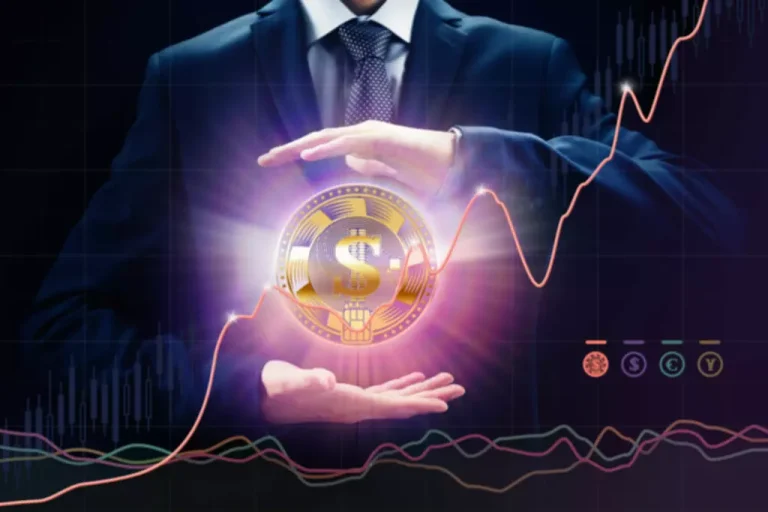Crypto Dark Pool Trading: Big Deals in the Shadows
Content
As we have learned, the major difference is publicly visible trading vs private and anonymized trading. The benefits of dark pools cater to institutional investors and brokers, allowing them to execute large trades Initial exchange offering with minimal market impact. By allowing institutional investors to trade large blocks of securities without revealing their intentions to the broader market, dark pools help reduce the market impact of these trades.
- By setting up specific conditions that must be met before a trade is executed, traders can ensure that their trades are executed only when the market conditions are favorable.
- Regulators have generally viewed dark pools with suspicion because of their lack of transparency.
- Therefore, the US Securities and Exchange Commission controls these exchanges despite the lack of transparency and unfair opportunities it may create for large institutions.
- With a spread order, the trader specifies a price differential between the securities, such as a certain number of basis points.
What is the difference between a crypto exchange and a brokerage?
Dark pool orders differ from these types of orders in that they are executed within a private market, rather than on a public exchange. Dark pool is an alternative trading system that is offered by independent companies, broker-dealers, and investment companies. They help large investors and small market participants get involved in dark pool trading the market anonymously. While dark pools may conjure images of secrecy and clandestine operations, they serve as alternative trading platforms for executing confidential off-exchange transactions. It’s important to note that the specific order-matching algorithms and protocols employed by dark pools can vary, as they are proprietary and closely guarded by the operators of each dark pool.
Electronic Market Maker Dark Pools
The investment bank unsuccessfully argued that the scope of the Martin Act is restricted to misrepresentations that affect investment decisions in transactions of a specific security. Broker-dealer-owned dark pools are operated by large financial institutions such as investment banks or brokerage firms. These institutions create their own private trading platforms, where their clients can execute trades away from public exchanges. Dark pool trading is an alternative trading system that provides enhanced privacy and anonymity to institutional investors. It allows them to trade large blocks of shares without revealing their https://www.xcritical.com/ intentions to the wider market.
FIX-compliant Dark Pool for Options
Tamta’s writing is both professional and relatable, ensuring her readers gain valuable insight and knowledge. The order book on an exchange is publicly visible, allowing traders to see the current bids, offers, and recent trade prices. Most of us are familiar with traditional exchanges, however, trading actually occurs through various venues, each offering unique advantages and challenges.
InsiderFinance makes these trades easy to spot with blue text on the notional amount. Combining late buys and sells (green and red highlights) with trend dots (green and red dots) makes it easy for you to identify whether a trend is continuing or a potential reversal could be starting.
This seeks to ensure that clients’ orders remain confidential and are not exposed to the broader market, reducing the risk of price slippage. To sum up, dark pool regulations vary across jurisdictions, with a common focus on promoting fairness, transparency, and market integrity. Disclosure requirements and measures to prevent market manipulation also play a crucial role in maintaining a level playing field. Regulators also focus on preventing any form of market manipulation or abuse within dark pools. They implement measures to deter fraudulent activities and protect investors. The primary objective of these regulations is to strike a balance between facilitating market efficiency, as well as promoting fairness and transparency.
Her passion was a driving force to assist her in becoming a Team Trader in 2022. You will enjoy hearing Bender everyday live in our options room called Roadhouse. Pull to refresh on the feed list page and filtering of the feed enhancement. For ETFs, pay attention to high activity days (20+), understand bullish or bearish sentiment, and look for trend validations or possible reversals.

The incentive to participate in such platforms lies in the benefits of economies of scale and network effects. For large investors with diversified portfolios, MTFs could meet all their trading needs. The share of equities traded on MTFs in Europe increased rapidly from a negligible percentage of turnover in 2008 to around 20% in 2011 (Fioravanti and Gentile, 2011). Prior research shows that the relationship between fragmentation and liquidity depends on the source of fragmentation, whether it is visible or dark (Degryse et al., 2015). We examine the impact of the new regulatory packages on European equity markets by identifying areas where the legislation is effective and comparing these changes in EU legislation with US legislation on dark pools. Dark pools disclose limited information about the identity of market participants, the content of their trades and the size of other contingent claims on these trades.
Dark pools in traditional financial markets have faced significant trust issues due to cases of money laundering, hacking, and information leaks. As a result, regions such as the United States and Europe, once leaders in dark pool adoption, have introduced regulations to increase transparency. They have also set clear conditions under which non-public trading can occur. In contrast, markets like Hong Kong, where dark pool usage has been limited, have restricted participation and prohibited retail investors from engaging in dark pool transactions.
There are three types, including broker-dealer-owned dark pools, agency broker or exchange-owned dark pools, and electronic market markers dark pools. In contrast to dark pools, traditional exchanges are sometimes described as lit markets. Dark pools are sometimes cast in an unfavorable light but they serve a purpose by allowing large trades to proceed without affecting the wider market. However, their lack of transparency makes them vulnerable to potential conflicts of interest by their owners and predatory trading practices by some high-frequency traders.
Empirical evidence suggests that liquidity appears to be shifting into periodic auctions, where investors regularly auction shares throughout the day (Besson et al., 2019). If the result of the trading caps is to divert trading from dark pools to periodic auctions, then policymakers and regulators have not really achieved their goals. Given their exclusive accessibility to select participants, the presence of dark pools may go unnoticed by the general investing public. Nonetheless, they play a crucial role in the trading landscape, with approximately 64 registered alternative trading systems, accounting for a significant portion of U.S. trading activity, as per a recent Reuters report. With the rise of decentralized finance (DeFi), crypto dark pool trading has garnered attention among crypto enthusiasts.
The reduced visibility of dark pool trading can also hinder the process of price discovery. Price discovery refers to the mechanism by which the market determines the fair value of an asset based on the forces of supply and demand. With dark pool trades being hidden from the public eye, the information needed for accurate price discovery is restricted. Decentralized dark pools, on the other hand, function as separate platforms that focus specifically on dark pool trading. They work kind of like decentralized crypto exchanges do, apart from the fact that their focus is on large-scale traders.

Mike has been a full-time options trader for 5 years and has found a very consistent method of trading profitably. When he started with Blackbox, he gained knowledge from Team Traders and the BlackBox trading community. Adding more intrigue to this scenario, one of the sector’s major players, Nvidia (NVDA), was set to report its earnings on February 16th. In light of the mysterious flurry of dark pool activity, traders would be wise to keep a close eye on NVDA’s performance and the broader semiconductor sector.
For example, a trader can set up an order to sell a certain amount of shares only if the price of the stock drops below a certain level. This way, the trader can limit their losses if the stock price drops unexpectedly. Institutional investors avoid the market impact that comes with trading large volumes of shares on public exchanges by using dark pools. This is because when a large trade is executed on a public exchange, it can signal to the market that there is significant buying or selling pressure, which can cause the price of the stock to move against the trader.
Jason became a member of BlackBoxStocks in 2018 and quickly learned how to trade by using the features on the platform, and the knowledge he gained from the education and community at Blackbox. He is now a Blackbox Team Trader and publishes the Swan Daily Watchlist (#SwanDailyWL) to members providing them with daily trade ideas. KJ started as a member with Blackboxstocks in 2019, she quickly realized this was a community and platform like no other.
